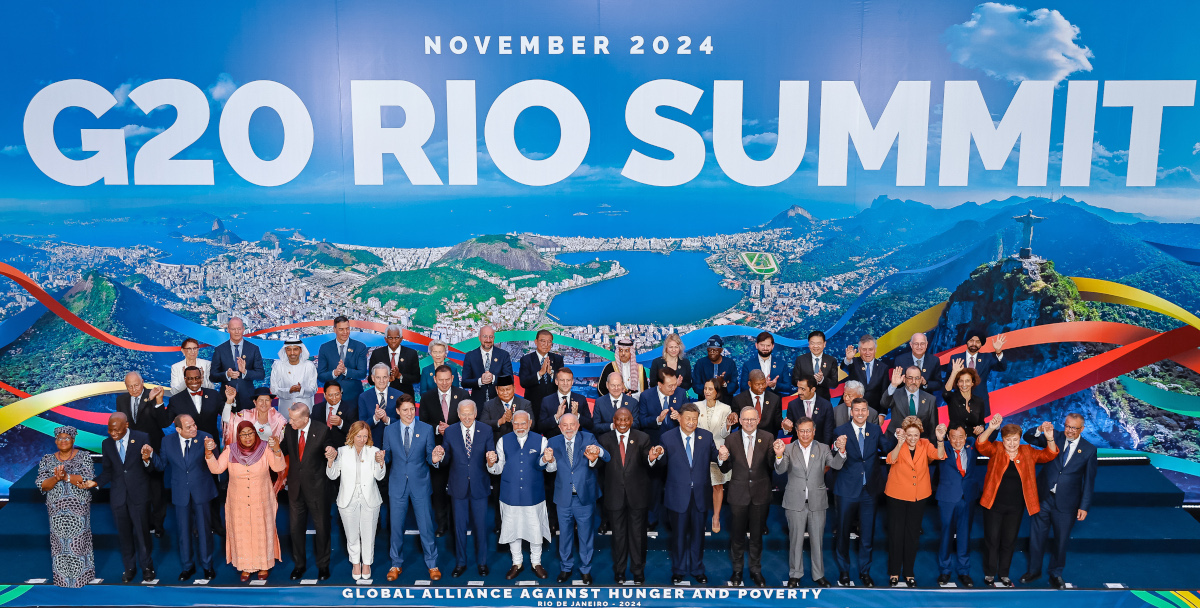 © Palácio do Planalto on flickr, Photo: Ricardo Stuckert/PR
© Palácio do Planalto on flickr, Photo: Ricardo Stuckert/PR
In November 2024, Brazil concluded its G20 presidency with the handover to South Africa. Just one week before the G20 Leaders‘ Summit in Rio de Janeiro on 11-12 November 2024, think tanks and research organisations from around the world gathered for the Think20 (T20) Summit. They took stock of the uptake and implementation of the policy advice they provided to the G20 throughout the year. This blog post provides an overview of key discussions at the T20 Summit with a focus on the priorities under Brazil’s G20 presidency. It analyses to which extent Brazil has continued initiatives of India’s G20 presidency in 2023, and shares an outlook on the potential approach of the South African presidency in 2025. (mehr …)



